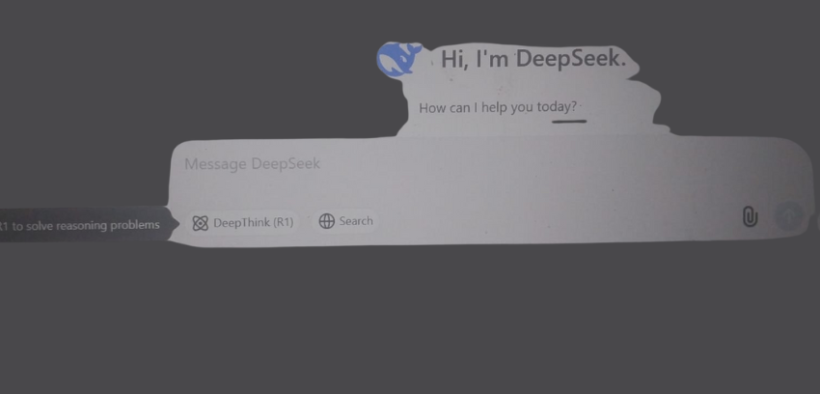DeepSeek Under Scrutiny: U.S. Congress Blocks Use Over Data Security Concerns
Share

DeepSeek, a Chinese artificial intelligence (AI) application, has come under intense scrutiny within the U.S. government due to significant data security concerns. The Chief Administrative Officer (CAO) of the U.S. House of Representatives recently issued an advisory, warning congressional offices against using DeepSeek. The application is currently under review and remains unauthorized for official use, reflecting mounting concerns over data integrity, national security, and foreign influence in critical digital infrastructure. Concerns over DeepSeek’s security infrastructure are not unfounded. The company recently faced a significant cyberattack, highlighting vulnerabilities in its AI-driven systems. Read about how DeepSeek’s meteoric rise also attracted a major cyber threat.
The Concerns Surrounding DeepSeek
DeepSeek has rapidly gained attention for its cost-effective AI solutions, positioning itself as a potential competitor to established U.S.-based AI firms such as OpenAI and Alphabet’s Google. However, its growing prominence has also triggered widespread apprehension among U.S. lawmakers and cybersecurity professionals. The primary concern is whether the Chinese-backed AI platform could be leveraged for espionage, data harvesting, or cyber-intrusions targeting sensitive U.S. government data.
The CAO’s directive explicitly advises government employees to refrain from using DeepSeek due to these unresolved security concerns. The advisory aligns with a broader strategy to fortify national security by meticulously evaluating foreign technology providers that may pose risks to data privacy and cybersecurity. Given the history of cyber threats linked to foreign actors, the heightened caution over DeepSeek reflects a proactive approach to mitigating potential vulnerabilities.
Implications for National Security and Data Protection
The decision to block DeepSeek highlights the escalating cybersecurity tensions between the U.S. and China. Over the past decade, U.S. policymakers have taken decisive measures to curb the influence of Chinese technology firms in sectors deemed critical to national security. From the blacklisting of telecommunications giant Huawei to restricting the use of TikTok on government devices, the scrutiny of Chinese-owned digital platforms has intensified. DeepSeek’s review follows this trend, emphasizing the U.S. government’s commitment to safeguarding its cyber infrastructure from potential threats.
For cybersecurity professionals, this development reinforces the growing need for stringent vetting processes when integrating AI solutions into sensitive environments. The use of foreign-developed AI tools introduces an array of risks, including unauthorized access to classified information, embedded vulnerabilities that could be exploited in future cyberattacks, and potential manipulation of AI-generated outputs. The concerns surrounding DeepSeek serve as a case study highlighting why cybersecurity experts must continuously assess the origin, control, and security framework of AI-driven technologies before adoption.
DeepSeek’s Position and Industry Reactions
As DeepSeek faces increased scrutiny in the U.S., the company has maintained that its AI models adhere to global data security standards. However, given the opaque nature of data governance policies in China and historical incidents involving state-backed cyber activities, such reassurances may not suffice for U.S. regulators. The lack of transparency regarding data access and retention policies within Chinese AI firms further fuels skepticism about whether platforms like DeepSeek can operate independently of governmental oversight.
The cybersecurity community has expressed mixed reactions to the situation. Some professionals argue that barring foreign AI solutions outright may limit technological diversity and competition, potentially slowing innovation in AI-driven cybersecurity. Others emphasize that the risks associated with unvetted AI applications outweigh their potential benefits, particularly when dealing with sensitive governmental data.
The congressional scrutiny intensified after reports surfaced about DeepSeek’s data security lapses. A major breach exposed API keys and passwords, raising alarms over how sensitive information is handled. Learn more about the DeepSeek data leak here.
What This Means for AI Governance and Future Policies
DeepSeek’s case signals a growing imperative for enhanced AI governance policies that clearly define acceptable data security standards for AI adoption in both governmental and corporate sectors. The U.S. government’s approach to DeepSeek may set a precedent for the treatment of other foreign AI models, prompting a reevaluation of existing frameworks for AI security compliance.
For AI developers and cybersecurity professionals, this situation underscores the importance of maintaining transparent security policies, ensuring compliance with regulatory expectations, and proactively addressing concerns over data integrity. Companies seeking to deploy AI solutions within critical sectors must prioritize security-by-design frameworks that guarantee data protection and mitigate risks associated with external manipulation.
As the review process for DeepSeek continues, it remains to be seen whether the platform will implement necessary security enhancements to regain trust or if the ban will become a permanent measure. The case serves as a crucial reminder for cybersecurity stakeholders that vigilance and due diligence remain the cornerstones of securing AI-driven infrastructure against emerging threats.










